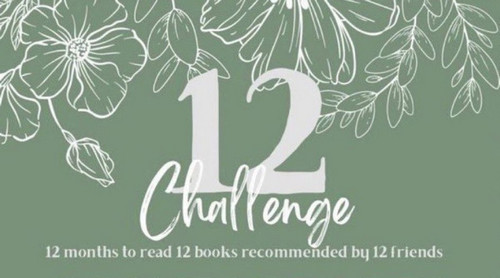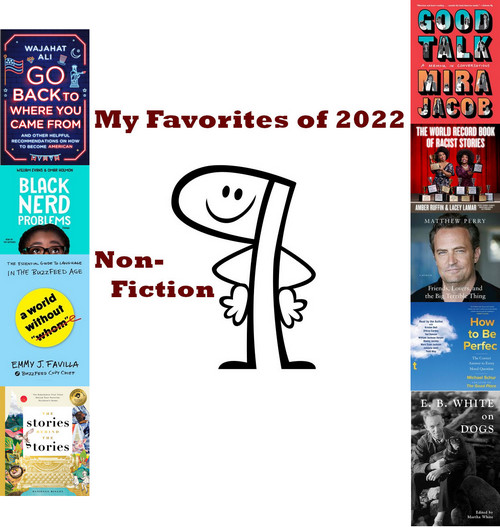
My 2022 Wrap up continues and now we’re on to the Non-Fiction list. While I liked a number of works that didn’t make this list, I felt strange calling them a “favorite.” So, we have 9 instead of the nigh-obligatory 10 for the second year in a row. These are the ones that stuck with me through the year; the ones I cited in conversation; that I thought about when reading something else or watching something on TV. Yeah, there’s some overlap between this list and the audiobook list from yesterday—lately, most Non-Fiction books I work through are in audiobook format. So it makes sense, even if it makes this post seem like an echo.
As always, I only put books that I’ve read for the first time on this list. I don’t typically return to NF books (outside of looking up things for one or three points), but occasionally I do—for example, The Pleasures of Reading in an Age of Distraction by Alan Jacobs would get a permanent spot on this list, were it not for this rule.
(in alphabetical order by author)
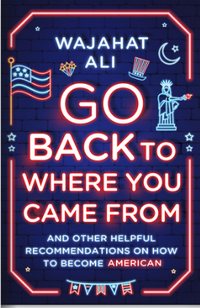 Go Back to Where You Came From: And Other Helpful Recommendations on How to Become American
Go Back to Where You Came From: And Other Helpful Recommendations on How to Become American
by Wajahat Ali
My original post
I’m just going to remix some of what I said originally, this book was a great mix of memoir, social commentary, and satire—with a little sprinkling of a more general humor thrown in. The way he shifted between the genres was fairly seamless and quite effective—his own story (and that of his parents) were good illustrations of the societal ills he wanted to point to. Ali’s story is the kind that Americans love to tell and hear about success—even if his telling points to many of the flaws in our society. Through grit, determination, perseverance, and endurance, Ali pushes through all sorts of cultural, societal, legal, medical, and circumstantial challenges to arrive where he is. Because he believes in what we can be as a people, based on our (incredibly inconsistently applied and demonstrated) ideals and aspirations. It’s the kind of story we need to see, hear, and read more of.

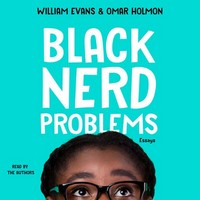 Black Nerd Problems:
Black Nerd Problems:
Essays
by William Evans & Omar Holmon
My original post
There are several strengths to this book—the first is the wide scope of the genres and ages of the pop culture they nerd out about. The second is the variety of the ways they express their appreciation (or lack thereof) for these cultural artifacts. Some of these essays are just silly, some are humorous, some touching, some sober—no two are alike in most ways. I wish I could write like this.

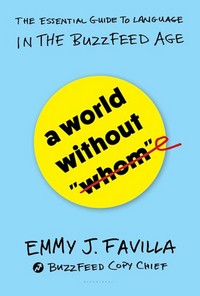 A World Without “Whom”: The Essential Guide to Language in the BuzzFeed Age
A World Without “Whom”: The Essential Guide to Language in the BuzzFeed Age
My original post
Sure, I disagreed with some of her takes—I’m less enamored with the idea of language as a ruleless entity than she is. But I found it impossible not to enjoy this—even when I thought Favilla was wrong about some particular note of grammar, I appreciated the way she thought about the idea and presented it. Mostly, I enjoyed reading about the process involved in creating and maintaining a style sheet for an entity as big and particular as Buzzfeed. The lists are the kind of thing I could read on a daily basis. As I wrote, “If you’re the kind of person who gets worked up about getting your phrasing juuuuuust right or are bothered when someone doesn’t. If you think reading tributes to commas and em dashes is a good time. Or if you’re curious about why someone would want to eliminate whom or is fine with letting the English subjunctive mood die…this is the book for you.”
(and, yes, I’m still planning on the tattoo inspired by the book)

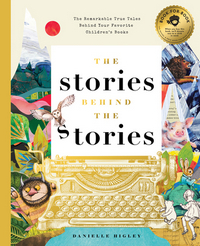 The Stories Behind the Stories: The Remarkable True Tales Behind Your Favorite Kid’s Books
The Stories Behind the Stories: The Remarkable True Tales Behind Your Favorite Kid’s Books
by Danielle Higley, David Miles (Illustrator)
My original post
I don’t know if I read a better-designed book last year (or the year before). It’s a treat for the eyes. But more importantly, the content is as good—if not better. I can see the book appealing to (and being understood) younger readers curious about some of the books they’ve read or seen at a library. It also was entertaining and edifying for a, um, more seasoned reader familiar with almost all of the books. I was surprised by some of what I read, learned something about all but one of the 20+ books covered and walked away with a hankering to go back and read some of these.

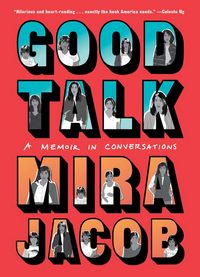 Good Talk: A Memoir in Conversations
Good Talk: A Memoir in Conversations
by Mira Jacob
My original post
Okay, this was pretty well designed, too. This graphic memoir really hit me on several levels. The art is simple, but very effective. The story of Jacob’s life is one that needs to be told—for the sake of those who can relate to remember they’re not alone, and for the sake of those who can’t relate at all to help build some empathy. The framing device of trying to explain race in the U.S. to a biracial child trying to understand the world around him is much-needed, and probably more so all the time. This was more powerful than I expected (and had some great moments of lightness, too!)

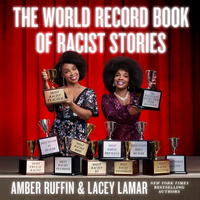 The World Record Book
The World Record Book
of Racist Stories
by Amber Ruffin & Lacey Lamar
My original post
Back at race again…this time looking at subtle and not-so-subtle, clueless and intentional, probably well-meaning and just mean, ways that one family has to deal with racism on a day-to-day basis. There’s enough silliness to make this book endurable because there are some anecdotes here that are stunningly awful. A strong follow-up to last year’s book.

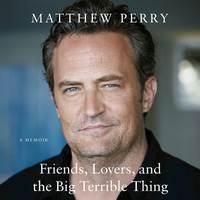 Friends, Lovers, and the Big Terrible Thing
Friends, Lovers, and the Big Terrible Thing
by Matthew Perry
I haven’t found time to write about this book yet, so I’m having trouble boiling things down into a concise paragraph. I’ve been a huge fan of Perry’s since episode 2 of Friends (and was a decently-sized fan based on the pilot), so I was drawn to this right away, but really wanted a break from celebrity memoirs and put off getting it until I read that the book focused so much on the “Big Terrible Thing.” There’s some stuff about his acting career—highs and lows, the usual behind-the-scenes, stuff. But this book is primarily about his mental health problems, his addictions, and the many, many ways he’s hurting himself and those around him. I wouldn’t call this a “warts and all” kind of portrayal of Perry, more of a “warts (and some other things)” look at him. There’s some hope and optimism, too, but it’s tempered.

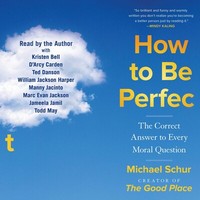 How to Be Perfect:
How to Be Perfect:
The Correct Answer to
Every Moral Question
by Michael Schur (Writer, Narrator)
with: Michael Schur, Kristen Bell, D’Arcy Carden, Ted Danson, William Jackson Harper, Manny Jacinto, Marc Evan Jackson, Jameela Jamil, and Todd May
My original post
This is a solid introduction to ethics and some of the major schools of thought behind contemporary approaches (with historical precedents). The kind of thing you might get in a 100-level course in college. But told in a very approachable way that will no doubt bring a smile to the reader’s/listener’s face occasionally. It’s not perfect, but it’s good. It’s thoughtful, but accessible. And it can—should?—act as a launching pad for further reading and study for those who want to dig in.

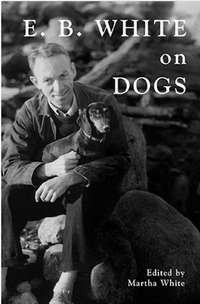 E. B. White on Dogs
E. B. White on Dogs
edited by Martha White
This is another one I haven’t had time to write about yet. I went in assuming this would be a good read—and got that. This is a collection of essays, shorter pieces, and letters written by White about (or mentioning) dogs. There are some solid gems here—honest laughs, amusing thoughts, and devotion to these animals that humans are so strongly drawn to. Readers of this blog know that I love good writing about dogs, and that’s exactly what we get here. There are a handful of things I’m not sure were worthy of including in this book other than for the sake of completeness, but I’m not going to complain.

![]()





